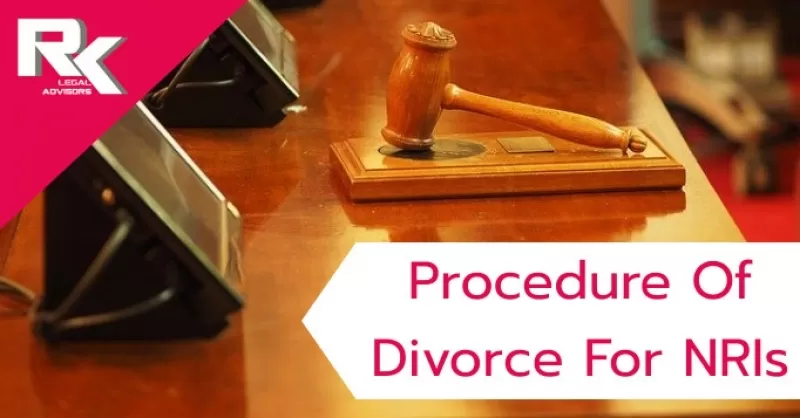Step By Step Divorce Procedure In India
Divorce, these days is less stigmatized in a larger part of the world. This is true for Indian couples also, including NRIs. The de-stigmatization of divorce has brought a more liberal approach for couples who wish to end their relationship on a less-bitter note. This is facilitated by the concept of ‘mutual divorce’.
If an NRI, who is married in India, wants to get a divorce by mutual consent, then he can file a petition for divorce in India or in the country where both the partners are living. As per Indian law, there is relaxation in filing the divorce in a foreign country. It accepts the case filed in the court of the jurisdiction where the couple last resided.
The issues of matrimony in India are diverse, they are based on religious affiliations. Hence ‘mutual divorce’ becomes a bit complex, as it depends on the laws under which the marriage was solemnized.
Matrimonial Laws And Their Applicability
- The Hindu Marriage Act of 1955 (Hindus, Jains, Sikhs, and Buddhist)
- The Indian Divorce Act 1869 and the Indian Christian Marriage Act of 1872 (people professing Christianity)
- The Dissolution of Marriage Act, 1939 and The Muslim Women (Protection of Rights on Marriage) Act, 2019 (for Muslims)
- Parsi Marriage and Divorce Act, 1936.
- Special Marriage Act of 1954.
Divorce by mutual consent in India is made possible by the introduction of the Marriage Laws (Amendment) Act of 1976. It amended the Hindu Marriage Act of 1955 and made divorce by mutual consent a valid ground.
Procedure For NRIs
- NRI couples can file for their divorce in a district/family court in India. In the petition, parties must mention the reason for divorce and why they think divorce is the only recourse available. This petition is called ‘first motion petition for mutual consent divorce’.
- After looking at the petition, the court will give some time to the couples to reconsider their decision, this is called as ‘cooling-off period’. It can last from 6 months to 18 months. This time period can be waived off if the court is convinced that it is futile to give time to a couple and their marriage is beyond repair.
- After the passage of this time period, court will determine whether parties are able to resolve their differences. It is called ‘second motion petition for mutual consent divorce’. In this period, the court will determine whether the couple could reconcile or not. If not, then divorce is granted after taking into consideration issues of maintenance, alimony, child custody, etc.
Points To Consider
- Both parties should have a consensus amongst themselves regarding divorce. If one party does not consent for divorce, then it requires an all-together different approach.
- The issues of alimony, maintenance and child custody must be discussed amongst spouses. Although the final decision is of the court, it makes divorce proceedings easy and less bitter.
- Before moving for a divorce proceeding, spouses need to show it to the court that they are unable to live together, minimum time may vary as per the matrimony law but 1 year is a commonly accepted norm.
- Couples must be convinced, before moving to court, that their marriage has collapsed totally, and divorce is the only recourse available for them.
- NRIs can file a divorce petition in the country of their residence as long as the matrimonial laws (under which marriage was solemnized) are followed. But there is an exception to these rules, in case one spouse is a naturalized citizen of another country or if both the parties accept the proceedings of the court.
- NRI couples can file for divorce by giving power of attorney to their lawyers in India.
NRIs can consult divorce lawyers for a variety of divorce procedures such as:
- Legal separation of the parties
- Alimony to the spouse in terms of monthly maintenance
- Division and transfer of property and assets
- Custody of children
- Cost-effective negotiations and settlements through mediation



.jpg&w=300&h=170&zc=1)







.jpg&w=350&zc=1)
